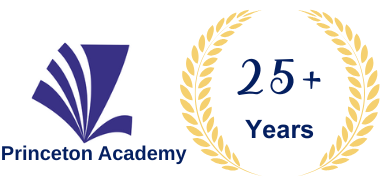Prof. Ranjan Das
Prof of Strategic Management, IIM Calcutta
Customer Centricity By Prof. Ranjan Das
- Introduction
Whether in the public or private sector there is an increased expectation for organisations and suppliers to be ‘customer centric’ such that there is a clear ‘line of sight’ from the development, design, corporate services, facilities management and “back room†staff and senior executives to see and serve the external customer through internal customers. This workshop has been designed to give participants practical experience in using various templates and tools to develop their own customer services capability and strategy. - Target Audience
• Leaders
• Senior managers
• Customer service managers who have direct influence on customer service strategies.
• Individuals who are decision makers
• Marketing professionals. - Overview of Customer Centricity
• What it Is and What it is Not
• Types of Customer Centricity - Why Focus on the External Customer?
- Basic Principles of Customer Focus/Service
• How to get started
• Who are the Customers?
• Defining Customer Centricity
• Customer Centricity/Business Excellence
• Understanding Customer Needs & Wants
• Understand what good practice Customer Centricity is and what it isn’t. - Best Practices of Customer Centricity
• Customer Centricity, what does a good practice organisation look like and critical characteristics?
• Leadership direction and support to deliver quality internal and external customer outcomes
• Creating and maintaining a customer serving mindset throughout the organisation
• Listening, learning and understanding to focus on the customer
• Build customer centricity into core principles and values
• How to Build customer centricity into business planning and strategy map key outcomes and measures to sustain the vision and build organisational capability.
• Performance management and measurement
• Sustaining excellence
• Identify why and how to focus the entire organisation on the external customers
• Practices that enable sustainable customer centricity - Getting Customer Feedback & Using It
• Wanting and managing complaints
• What are the customers really telling us?
• Feedback mechanisms
• Gaining buy-in for improvements
Tools and Templates for you to Use
• Tools that work in best practice orgs
• Templates for you to use - Customer Centricity Excellence Model
• The best practices model
• Assessing your strengths and gaps
• Benchmarking to accelerate improvement
• What are the customers really telling us? - Programme Outcomes:
At the end of the Training, participants will have a clear, customised strategy, a supporting action plan, tools and templates to progress and implement Customer Centricity in your own organisation. - Participants will Know How to Plan, Organise and Implement Customer Centricity, including:
- • Understand what good practice Customer Centricity is and what it isn’t.
• Create a Customer Centricity vision that is specially for your organisation
• Identify why and how to focus the entire organisation on the external customers
• A draft definition for their organisation
• How to understand, communicate and manage customer needs and wants
• Build customer centricity into core principles and values
• Practices that enable sustainable customer centricity
• How to build customer centricity into business planning and strategy map key outcomes and measures to sustain the vision and build organisational capability
• Managing customer complaints
• Types of customer feedback mechanisms
• Gaining buy-in
• Knowing Tools and Templates to use
• Excellence Model for Customer Centricity
• How to identify gaps and strengths
• Partnership Agreements
• Network ideas and harvest best practices
- Program Director & Faculty
- Prof Ranjan Das
- Professor of Strategy at IIM Kolkatta since 1997
- Expertise of devising strategy, execution and corporate restructuring.
- Over 2 decades of industrial experience at senior Level, has been MD of joint stock company prior to joining IIM.
- Prolific Author – 6 books and published several research papers .
- Consulted / Advisor to more than 50 companies
How to Register
- Fees: Rs. 11,500/- + 18% Goods & Service tax per person
- Please write to register@princetonacademy.co.in / Call -022 66976892/74 or 022 67256200
- Mention the name of participant, company, contact details .
- Cheque favoring Princeton Academy Mumbai II Pvt. Ltd. payable at Mumbai.
- Fees includes lunch, tea, course material etc.

